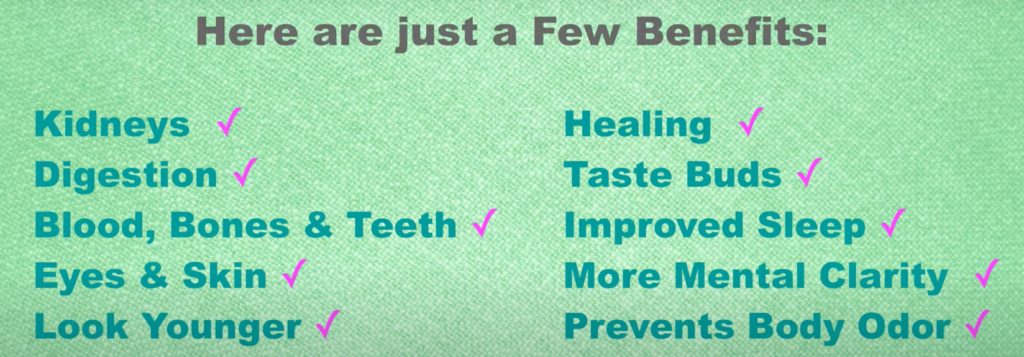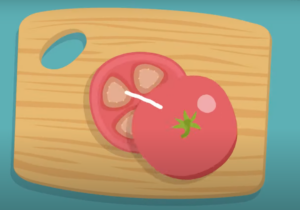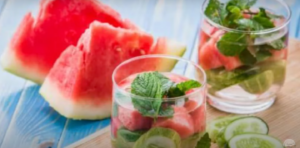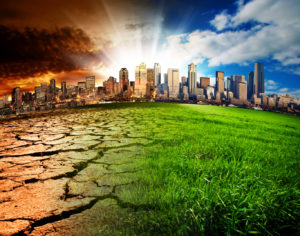The raw food diet, which primarily focuses on consuming unprocessed and uncooked foods, has gained popularity in recent years due to its perceived health benefits. Proponents of the raw food diet argue that it maximizes the nutrients in food, preserves enzymes that can aid digestion, and helps detoxify the body by eliminating processed foods. A typical raw food diet is made up of fruits, vegetables, nuts, seeds, sprouted grains, and legumes, often emphasizing plant-based foods with minimal animal products. The idea behind this diet is that cooking food can destroy some of the nutrients and enzymes, potentially reducing its health benefits. Many people report feeling more energized, losing weight, and experiencing improved digestion when switching to a raw food diet.
Notable Disadvantages Of Raw Food Diet
However, there are notable disadvantages to eating a raw food diet. One of the primary concerns is the lack of variety and potential nutrient deficiencies. For instance, a raw food diet can be low in certain essential nutrients, such as vitamin B12, calcium, iron, and omega-3 fatty acids, which are typically found in animal products and some cooked foods. These deficiencies can lead to health issues over time, such as anemia or weakened bones. Additionally, some foods, such as certain beans and grains, contain anti-nutrients that can interfere with the absorption of essential nutrients when eaten raw. For example, raw beans contain lectins, which can be toxic and cause digestive upset unless they are properly cooked. Raw food diets can also be low in protein, making it difficult to maintain muscle mass, especially if the diet doesn’t include sufficient plant-based protein sources.
Another disadvantage of a raw food diet is the potential for foodborne illness. Raw animal products, such as meat, eggs, and dairy, can carry harmful bacteria like Salmonella or E. coli, which can lead to food poisoning. While a fully plant-based raw diet may mitigate this risk, the consumption of raw foods still carries the possibility of contamination from bacteria or parasites, particularly if fruits and vegetables are not washed thoroughly. Furthermore, the raw food diet can be time-consuming and expensive, as it often requires sourcing high-quality, fresh, and organic produce, which may not always be easily accessible or affordable.
Specific Foods To Avoid
 Not all foods are inherently “bad” for you, but some can be harmful if consumed in excess or prepared improperly. For example, certain foods like highly processed sugars, trans fats, and artificial additives can contribute to chronic diseases, including obesity, heart disease, and diabetes. Additionally, some foods are naturally toxic to humans, such as certain types of mushrooms, unripe fruits like ackee, or foods containing high levels of cyanide (e.g., bitter almonds). These foods should be avoided or consumed with caution, depending on their preparation methods.
Not all foods are inherently “bad” for you, but some can be harmful if consumed in excess or prepared improperly. For example, certain foods like highly processed sugars, trans fats, and artificial additives can contribute to chronic diseases, including obesity, heart disease, and diabetes. Additionally, some foods are naturally toxic to humans, such as certain types of mushrooms, unripe fruits like ackee, or foods containing high levels of cyanide (e.g., bitter almonds). These foods should be avoided or consumed with caution, depending on their preparation methods.
For example, are pumpkin seeds bad for you when it comes to gut heath? Pumpkin seeds are generally not bad for you; in fact, they are considered a nutrient-dense food with many health benefits. Pumpkin seeds are high in antioxidants, healthy fats, protein, magnesium, and zinc, making them a great addition to a balanced diet. They may support heart health, improve sleep, and provide anti-inflammatory benefits. However, moderation is key. Pumpkin seeds are calorie-dense, so consuming them in excessive amounts could contribute to weight gain. Also, some individuals may have sensitivities or allergies to seeds, which could lead to digestive issues or allergic reactions. As long as they are consumed in moderation and as part of a balanced diet, pumpkin seeds can be a healthy and beneficial food.
Nutrient Rich Diet
 While a raw food diet can offer some health benefits by promoting the consumption of nutrient-rich, unprocessed foods, it also comes with potential disadvantages, such as nutrient deficiencies, foodborne illness risks, and a lack of variety. As with any diet, balance and moderation are crucial. Not all foods are inherently bad, but improper consumption or preparation can make certain foods harmful. When it comes to foods like pumpkin seeds, they are typically healthy and provide a range of benefits, but, like all foods, they should be consumed in appropriate amounts to ensure overall health and well-being.
While a raw food diet can offer some health benefits by promoting the consumption of nutrient-rich, unprocessed foods, it also comes with potential disadvantages, such as nutrient deficiencies, foodborne illness risks, and a lack of variety. As with any diet, balance and moderation are crucial. Not all foods are inherently bad, but improper consumption or preparation can make certain foods harmful. When it comes to foods like pumpkin seeds, they are typically healthy and provide a range of benefits, but, like all foods, they should be consumed in appropriate amounts to ensure overall health and well-being.
 Sustainability, by definition, is the ability to avoid depleting the natural resources so that ecological balance is “sustained”. People are choosing to reach a level of sustainability through using a variety of means. They strive to learn how to live life in a greener way and it is something that we could all benefit from doing more of.
Sustainability, by definition, is the ability to avoid depleting the natural resources so that ecological balance is “sustained”. People are choosing to reach a level of sustainability through using a variety of means. They strive to learn how to live life in a greener way and it is something that we could all benefit from doing more of.
 There are a lot of things that each and every family can do to help the sustainability movement. You can purchase an environmentally friendly vehicle, use solar power, and much more. It goes beyond the big things, though. You can use greener lawn care products, live by the 3 R’s, (reduce, reuse, recycle), use products for cleaning that are earth friendly, and more. Most all manufactures today attempt to make products that cause less damage to the environment. They are all trying to reduce our carbon footprint and it only takes a little effort for you to find the products that work, without causing damage.
There are a lot of things that each and every family can do to help the sustainability movement. You can purchase an environmentally friendly vehicle, use solar power, and much more. It goes beyond the big things, though. You can use greener lawn care products, live by the 3 R’s, (reduce, reuse, recycle), use products for cleaning that are earth friendly, and more. Most all manufactures today attempt to make products that cause less damage to the environment. They are all trying to reduce our carbon footprint and it only takes a little effort for you to find the products that work, without causing damage.